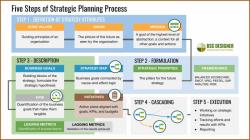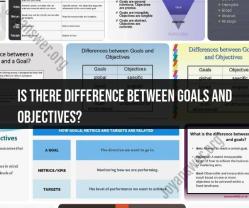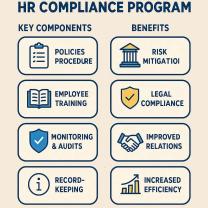What are things you need to start a business?
Starting a business involves various steps and considerations. Here's an essential checklist of things you need to start a business:
Business Idea: A clear and viable business idea or concept that addresses a specific market need or opportunity.
Market Research: Thorough research to understand the target market, customer demographics, industry trends, and competitive landscape.
Business Plan: A comprehensive business plan outlining your business goals, target market, value proposition, marketing strategy, operational plan, financial projections, and growth strategy.
Legal Structure: Choose a legal structure for your business, such as sole proprietorship, partnership, limited liability company (LLC), or corporation. Register your business and obtain any necessary permits or licenses.
Business Name: Choose a unique and memorable name for your business that reflects your brand identity and is available for registration.
Financing: Determine how you will finance your business, whether through personal savings, loans, investments, or crowdfunding. Develop a budget and financial projections to manage expenses and cash flow.
Location: Decide whether your business will operate from a physical location, home-based, or online. Secure a suitable location, lease agreement, or set up your home office/workspace.
Products or Services: Define the products or services you will offer, including pricing, packaging, and delivery methods. Develop prototypes or samples if applicable.
Supplier and Vendor Relationships: Establish relationships with suppliers, vendors, manufacturers, or service providers to source materials, products, or support services.
Technology and Equipment: Determine the technology and equipment needed to operate your business efficiently, such as computers, software, machinery, or tools.
Branding and Marketing: Develop your brand identity, including your logo, website, marketing materials, and promotional strategies to attract customers and build brand awareness.
Legal and Regulatory Compliance: Ensure compliance with all legal and regulatory requirements relevant to your business, including business registration, licenses, permits, taxes, and intellectual property protection.
Insurance: Consider obtaining business insurance to protect against potential risks, such as liability, property damage, or loss of income.
Human Resources: If necessary, recruit and hire employees or contractors to support your business operations. Develop job descriptions, employment contracts, and HR policies.
Accounting and Financial Management: Set up accounting systems and processes to track income, expenses, and financial transactions. Consider hiring an accountant or using accounting software to manage finances.
Networking and Support: Build a network of mentors, advisors, peers, and industry contacts to provide guidance, support, and opportunities for collaboration.
By completing this checklist and addressing each essential aspect of starting a business, you can lay a solid foundation for success and navigate the challenges of entrepreneurship more effectively.
Launching Your Dream: Essential Resources and Steps
Turning your entrepreneurial dream into reality requires a combination of resources and a well-defined roadmap. Here's a breakdown of what you need:
1. Essential Resources and Elements:
- Financial Resources: Securing funding is crucial. This could involve personal savings, loans, investments, or a combination of these. It's essential to have a realistic understanding of your financial needs and develop a solid financial plan.
- Human Resources: You might need to build a team with skills and expertise complementary to your own. This could involve hiring employees, contractors, or collaborators depending on your business model.
- Physical Resources: Depending on your business, you might need physical resources like office space, equipment, inventory, or manufacturing facilities.
- Intellectual Resources: This includes your own knowledge, skills, and experience, as well as any intellectual property you may possess, such as patents, trademarks, or copyrights.
- Digital Resources: A website, online presence, and relevant software tools can be essential for reaching your target audience and managing your operations.
2. Creating a Checklist for Starting a Business:
- Develop a Business Idea: Identify a market need and create a clear value proposition for your product or service.
- Market Research: Conduct thorough research to understand your target audience, competition, and industry trends.
- Business Plan: Create a comprehensive plan outlining your business goals, strategies, marketing plan, and financial projections.
- Choose a Business Structure: Decide on the legal structure for your business, such as sole proprietorship, partnership, or Limited Liability Company (LLC). Each structure has different legal and tax implications.
- Obtain Necessary Licenses and Permits: Research and acquire any licenses and permits required to operate your business in your specific location and industry.
- Secure Funding: Develop a strategy to secure the necessary financial resources to launch and operate your business.
- Develop Financial Management System: Establish a system for managing your finances, including bookkeeping, invoices, and tax planning.
- Build Your Team: Recruit and hire qualified personnel or collaborate with freelancers and contractors as needed.
- Marketing and Sales Strategy: Develop a plan to reach your target audience, promote your product or service, and generate sales.
- Launch and Operate: Implement your plan, monitor progress, and adapt your strategies as needed.
3. Legal and Financial Requirements:
- Business Structure: Choosing the right structure has legal and tax implications. Consult with a lawyer and accountant to determine the most suitable option for your specific business.
- Licenses and Permits: The specific licenses and permits required vary by location and industry. Research local and state regulations to ensure compliance.
- Taxes: Understand your tax obligations and comply with federal, state, and local tax regulations. Consulting with a tax advisor is recommended.
- Financial Regulations: Depending on your industry and business structure, there might be additional financial regulations you need to comply with. Consulting with a financial professional is crucial.
Remember, this is a general overview. The specific resources, requirements, and steps will vary depending on the nature and complexity of your business. Consulting with professionals like lawyers, accountants, and business advisors is highly recommended to navigate the legal, financial, and strategic aspects of launching your business successfully.













